They laughed in the face of PC Gamer, told Gamespot to feck off, and pushed Rock Paper Shotgun into a really deep bit of the Kennet & Avon canal. The only place on the ludological internet where you’ll find an interview with the world’s scariest equestrian quartet is here on Tally-Ho Corner.
(continued from part 1)
Tim: You really believe the games industry makes your job easier?
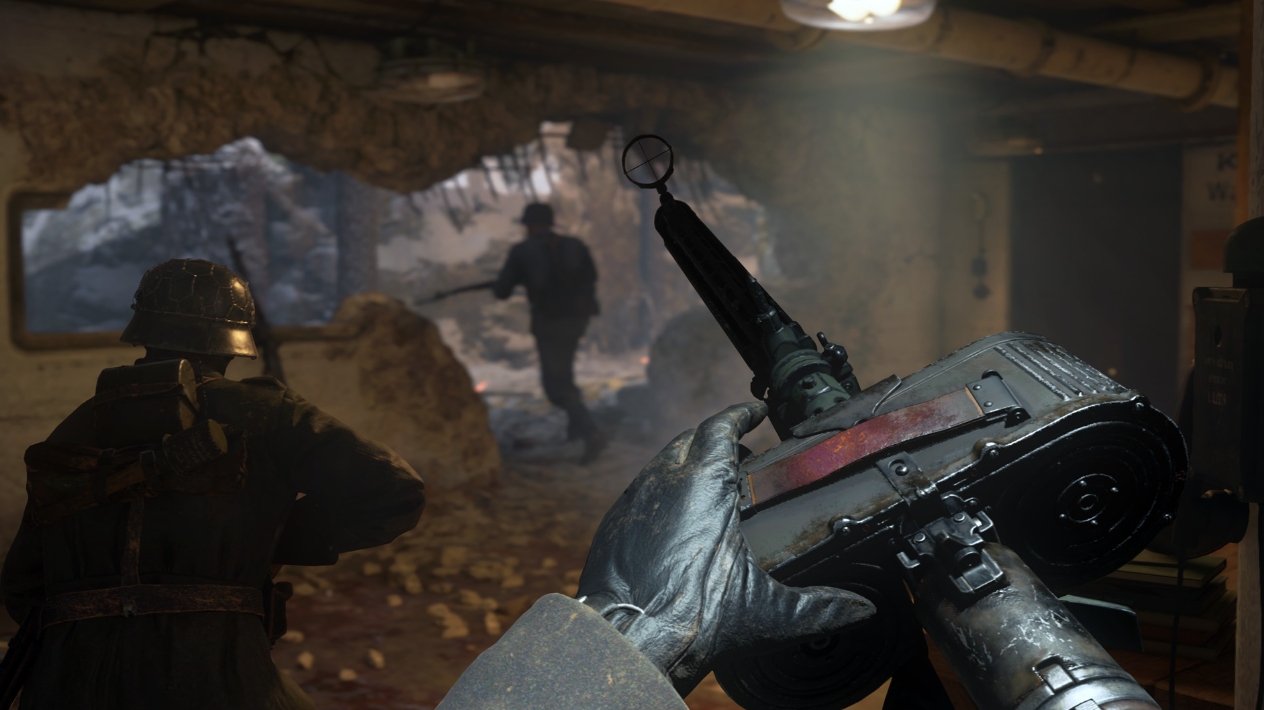
War: Let me put it this way. If the games industry put as much energy and money into depicting the long-term legacy of my work – disability, pain, grief, guilt, PTSD, addiction, poverty – as they put into recreating my fleeting spectacle, my component crafts, and my colourful tech, then there’s no way I’d be as busy as I am right now.
Tim: So should every war game be an anti war game – a deterrent?
War: Look, it suits me just fine if generations of impressionable young men – and they are mostly men – come to associate the sights, sounds, and tools of conflict with excitement and pleasure. My mongers have less trouble filling their freezing dug-outs and clapped-out tanks and APCs, and the tally on my trusty mortograph… (he reaches inside his cloak and pulls out an object that looks like a cross between a pocket watch and a shuriken) …keeps climbing.
But I’m not going to pretend I don’t admire the devs that refuse to toe the line.
Tim: Devs such as?
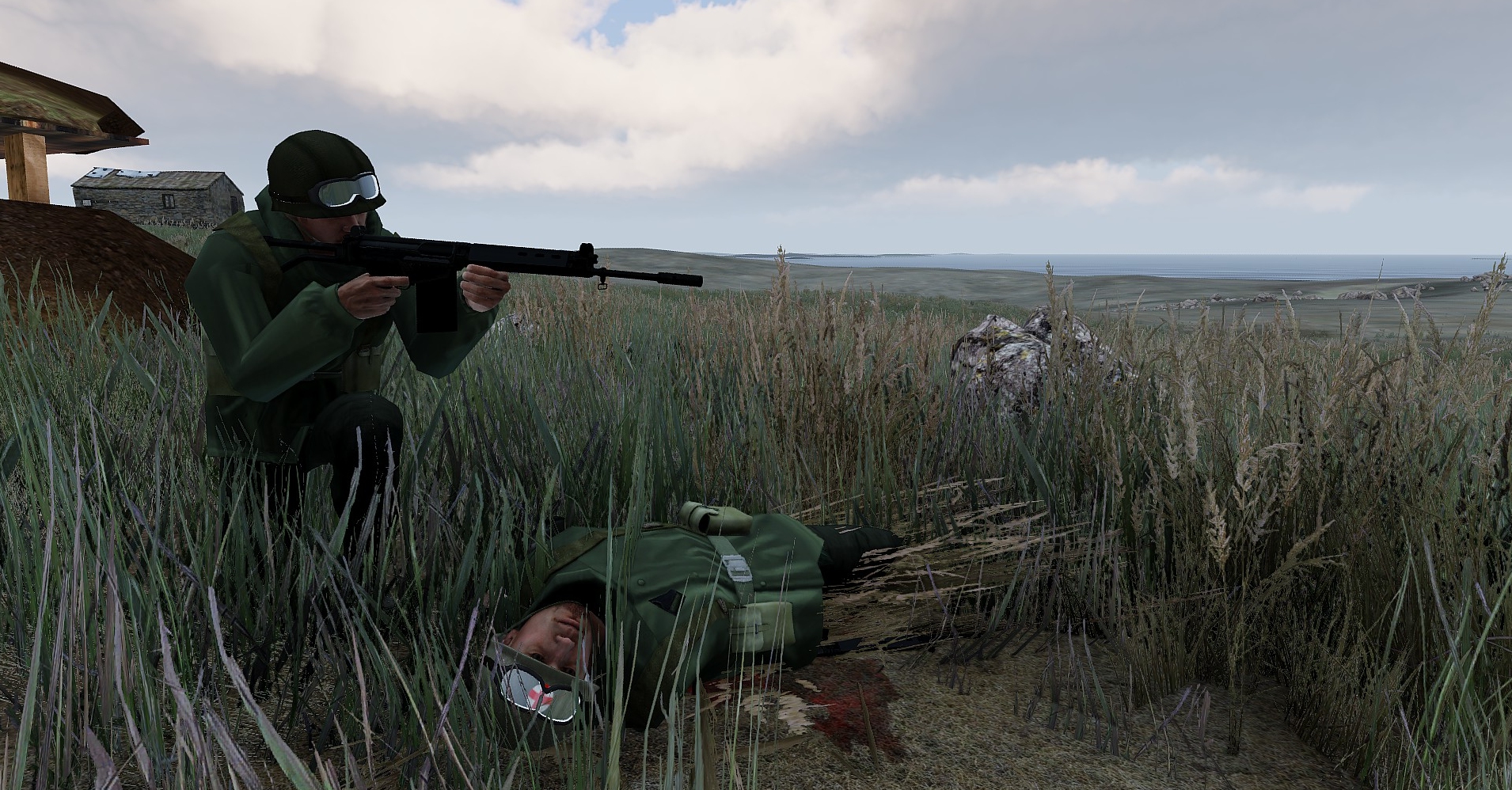
War: Have you ever played No Picnic by Green Goose Games? It’s a Falklands War FPS incorporating a clutch of thought-provoking features. For starters you see the action from both sides. Roughly half the time you play as an Argentinian soldier. The other half you’re a British para. The cleverest aspect of the design is what happens when you ‘die’. There’s no trite on-screen announcement or melodramatic music and fade to black. Instead you wake up in a variety of beautifully realised post-bellum locations – a sweat-drenched hospital bed, a swaying train carriage, the passenger seat of a moving car, a tent under a noisy railway viaduct… I won’t spoil the game for those who’ve not played it by talking about what happens in these interactive afterwords, but the scenes – the people you encounter and the conversations you have – aren’t quickly forgotten.

SutureSoft’s Wartorn is another title I have a lot of respect for. It’s the only surgery sim – hell, the only game – I know of that dares to show what shrapnel, bullets, napalm, fire, blast… actually do to the human body. And basing the ‘missions’ in the Afghanistan, Iraq, and Ukraine expansion packs on real cases was genius. The post-surgery video clips through which you ‘meet’ the actual people you’ve operated on – hear them talk about their brushes with death, and their lives since – send an HE round crashing through the fourth wall.
Tim: Are there any upcoming titles that you’re excited about?
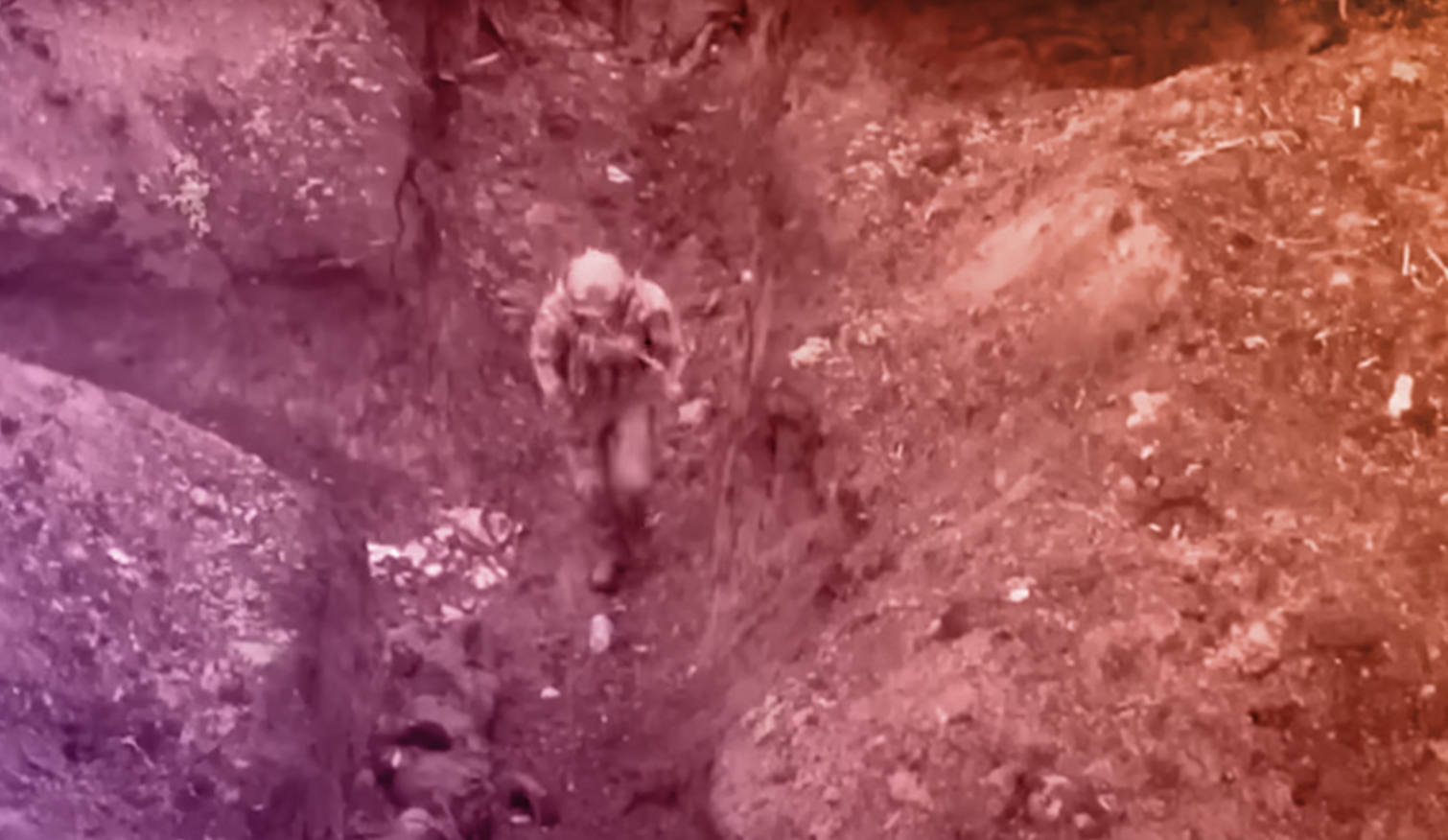
War: The Kestrel and the Frog shows promise.
Tim: I’ve not heard of that one.
War: It hasn’t broken cover yet. At its centre is the evolving relationship between a drone pilot (the player) and an enemy grunt who’s entrenched on a hillock turned into an island by floodwater. The pair end up communicating via scrawled signs, dropped notes, hand signals, and flight manouevres. I don’t want to give too much away but the early build I played had more than a hint of Hell in the Pacific to it. Anyone expecting a cosy tale of foes-turned-friends is in for a rude shock.
Tim: Have you ever played a war game that generates fear as masterfully as you do?
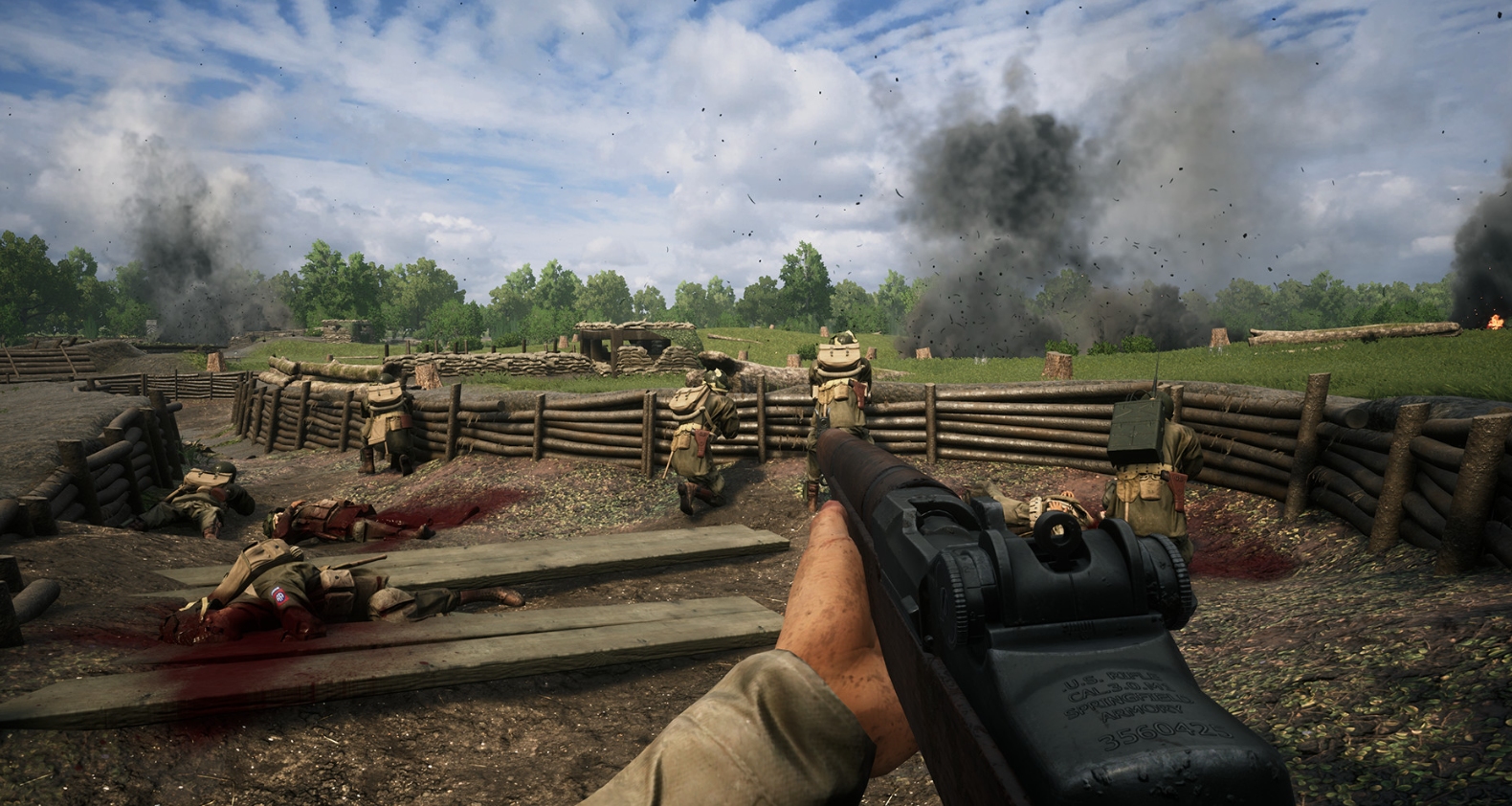
War: None spring to mind, but the growing popularity and sophistication of suppression mechanics in military first-person shooters feels like a step in the right direction.
Fear cultivation is a thorny creative problem that can be tackled in several different ways by gamewrights. A game can evoke the sights, sound, and feel of battle so well that the player momentarily forgets they are in a simulation, use Surrealist techniques to chill, or it can penalise in-game death and injury in such an ingenious/punitive manner that fear and peril go hand in hand.
Tim: What did you make of Khaki Blood, the controversial perma-permadeath FPS?
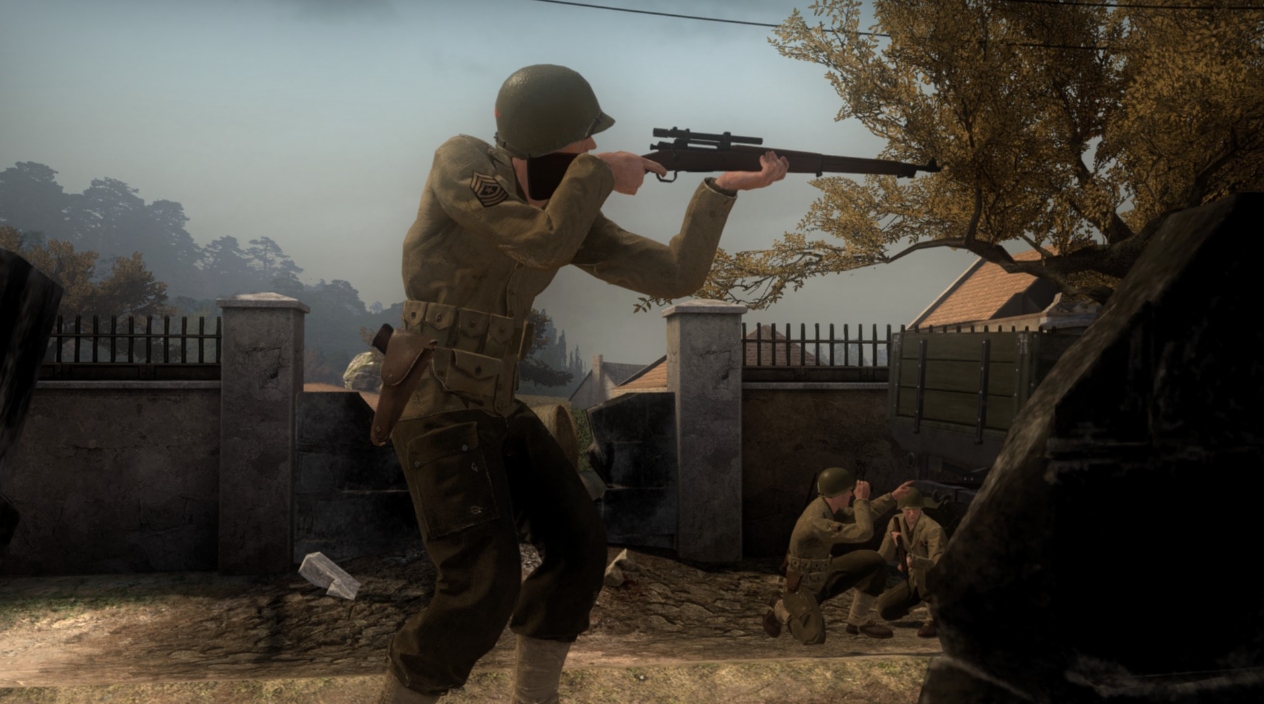
War: I always felt that King Zog was more interested in lining its own pockets than communicating truths. That said, what was in-effect a £5 respawn fee did focus the mind rather effectively. Heroism and bravado were refreshingly rare on KB battlefields last time I checked!
Tim: While we’re on the subject of fear… Climate Change, your three buddies can, with relative ease, cause meatbags like me to kill, panic, despair, hide, pray for death, and soil ourselves. You, on the other hand, often can’t even persuade people to recycle food cartons, or drive and fly less. Do you regard your inability to instill fear as a significant problem, and could games help you solve that problem?

CC: You’ve clearly never experienced a flood, forest fire, mudslide, or tropical cyclone first-hand. Rest assured, I can generate bowel- and bladder-loosening terror every bit as effectively as my colleagues. My problem isn’t fear generation, it’s accreditation… brand recognition. When I manage to scare people witless, those people frequently don’t realise I’m the chap responsible. For example, Famine would be the first to admit he often gets credit for my handiwork.
Famine: True.
CC: Can computer games help me raise my profile and get the recognition and respect I deserve? Indubitably. I’ve got particularly high hopes for Flight Sim 2124, a project currently underway in France.

I don’t think I’d be in breach of the NDA if I told you FS2124 is going to be a) free, b) have a lot in common with Asobo’s smash hit, and c) be the most disturbing sim ever made. Using cutting edge climate and meteorology modelling, groundbreaking AI, and top-notch photogrammetry, developer Last Chance Interactive is keen to show the world exactly what I’m capable of. Fliers will get the chance to trot a globe irrevocably transformed by my power, and your complacency and selfishness. The drowned islands and cities, the reshaped coastlines, the spreading deserts, the vast out-of-control wildfires… you won’t be able to fly far without seeing my calling cards.
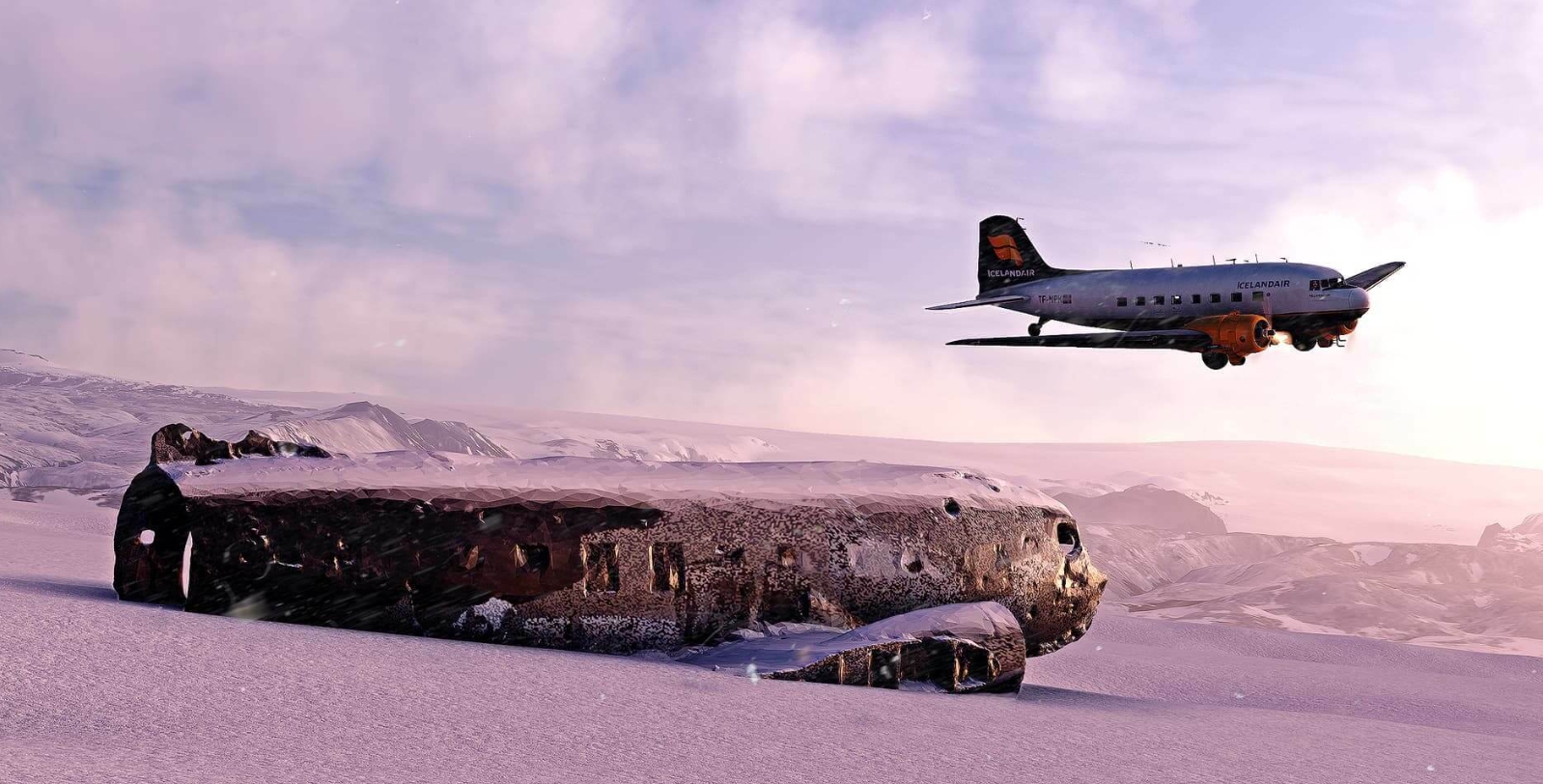
Pilots will be able to compare ‘current’ vistas with earlier ones using a splitscreen mode, their GPS, or a year slider. If they choose to they can collect toggleable ‘extinction’ and ‘shock’ tokens as they aviate. The former float above spots where the last wild example of a particular species of plant or animal was sighted, and the latter mark the epicentres of natural disasters. Fly through the tokens and details of the extinctee or incident are revealed.
One of the furnished flightplans sets up a heartbreaking flight across what remains of the Amazon rainforest after another century of deforestation and drought. There are extinction tokens wherever you look in that one.
Tim: I’m sure you’re aware of this, but you have a knack for making people feel impotent… fatalistic… depressed. Aren’t apocalyptic games like FS2124 just going to make matters worse?
CC: In isolation, yes, there is that risk That’s why why we need smaller scale, more positive/practical titles like Village Green too.
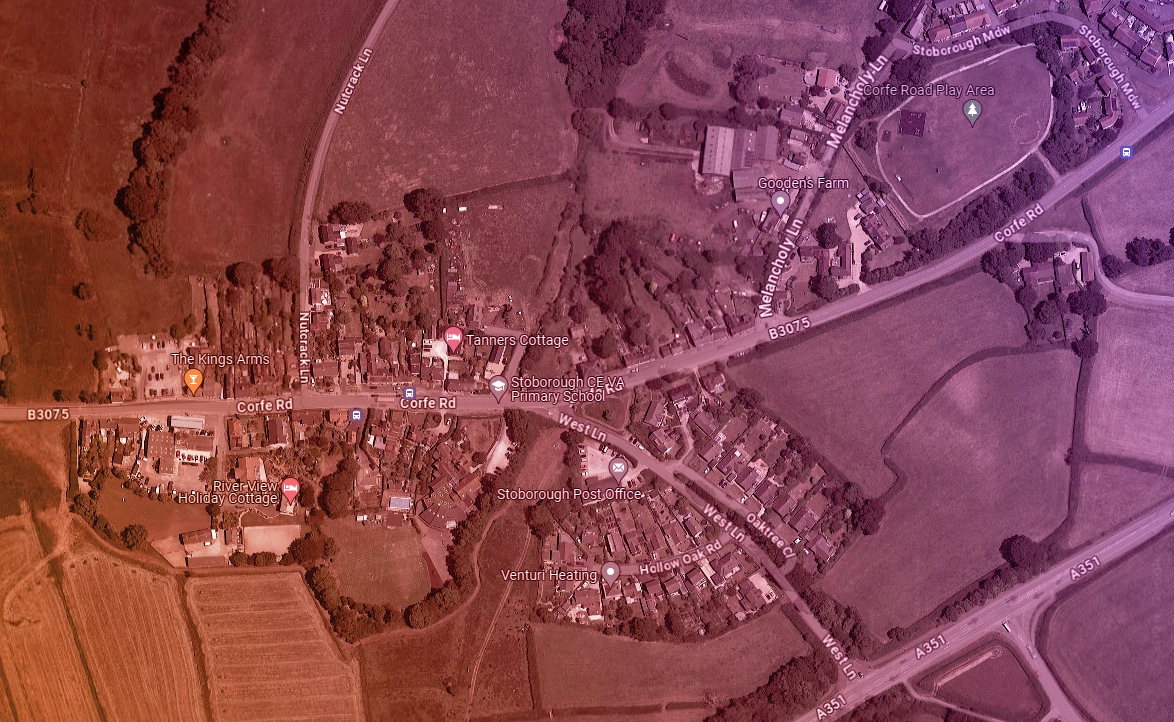
Tim: An upcoming management game about decarbonising a typical British village?
CC: Got it in one. VG’s villages are randomly generated, have ludicrous names such as Great Snoring, Nether Wallop, and Shitterton, and…
Tim: Umm. I believe all of those are real places. I once bought a Fiat Panda from a bloke who lived in Nether Wallop.

CC: Whatever. As I was saying, VG’s villages have randomly generated layouts and, more importantly, randomly generated populations with diverse views and attitudes. While the family living at No.3 School Lane might be doing everything they can to live sustainably, the couple at No.4 could have their heads firmly planted in the sand. Every individual has a ‘greenness’ rating and the sum of these ratings is your green capital – the resource you spend each turn on activities such as organising community projects, raising consciousness, and lobbying local councils.
I realise it sounds a tad pedestrian, but trust me, seeing the mercury in the on-screen carbonmeter fall over time is really satisfying. That ‘green’ you invested in persuading the local farmer to provide land for expanded allotments means Upper Bumhole’s inhabitants are making fewer trips to the nearest big supermarket and consuming less meat. Progress! Because the Webbs at Lilac Cottage have finally decided to install solar panels, villagers who know them or live close will get a small greenness boost. Nice work!
If you’re really canny, there’s a good chance you’ll eventually find yourself in a position to construct apex amenities. Take my word for it when I say that cutting the ribbon on a community wind turbine, heat pump, or ‘living machine’ sewage treatment system can be every bit as satisfying as destroying a Tiger tank or taking a victory hex.
Tim: It certainly sounds… worthy, but I suspect you’re preaching to the choir with titles like this. People who switch off or change channels when climate change is mentioned aren’t going to touch Village Green with a barge pole.
(To be continued. But not next week.)


Climate Change advocating for Titanic seating re-arrangement in tiny English hamlets is spot on. Remember, he’s not trying to *solve* the problems we face…
The first installment of this interview was great. Part Two has bumped it up to one of my very favourite Tim Stone pieces. Thoughtful, incisive, imaginative – my only disappointment being when I excitedly went to google these games. Can’t wait for part 3!
A real morale booster. Thank you, captain.
half of me is on the meh side… the other half wants to ask… why these 4 chaps are so keen in ‘helping’?
Captaincabinets is spot on, an incredible piece of writing!
Thanks. Coming from someone on the CC frontline, that means a lot.
Yeah, I googled the games as well. If only…
In any case, I would assume we can expect 4 parts in total, right?
As an aside, there is something that introduces maybe not fear, but something similar under specific circumstances. Peer pressure. In team based PvP games, moderatedly long matches and permadeath risk aversion is a real thing. Nobody wants to be the first to look bad in front of mates you are going to play with for months or years. It is prominent enough that making people drop self-preservation instincts on cue is one of the main jobs of the leadership.
>>we can expect 4 parts in total, right?
I’m not sure I have the material/cheek for four articles, but never say never.
A couple of questions for Mister War:
1) obviously there’s more to you than any single scholar could carry around in their head, but I feel your five-thousand year history has been pretty well explored; how do you plan to re-invent / stay relevant in the 21st century?
Are there any games / fiction that demonstrate a future self you aspire to?
2) I think I am being fair in saying the mid- to late-eighties were a less busy time for you; how did your collaborations with your cousin Commerce come about?
What did you make of yuppies reading Sun Tzu?
3) can you please stop crossing your legs like that?
4) are there any questions that bloody Jason Schrier hasn’t already asked?
Perhaps an interview with The (now or once) Future Four could be arranged? You already mentioned Commerce, but wasn’t Communism considered an up-and-coming rider for a time? I figure there’s a number of figures to make up a shortlist: Politics was suggested in another comment, Democracy wasn’t always the cool kid either, how about Sloth…
Okay. Admittedly I am breaking cover. I cannot recall chuckling out loud over something in far too long. Thanks.
My pleasure. If you fancy having your ribs tickled by a real pro (and don’t mind the odd leathery puzzle) Joe Richardson’s adventure games are hard to beat:
https://store.steampowered.com/search/?developer=Joe%20Richardson
captaincabinets wroter it better than I could in his “nice and accurate” post. What a great piece of writing, Tim!
Stunning work, Tim, this and the first part. Not only the writing, but in their frightful presence, no less. It’s one thing to be a War-correspondent and another to do so with all four.
Perhaps War’s long-term legacy (ditto Famine and Pestilence) could be the subject of a game jam – or a THC award. It occurs to me something like a THC Top 50 eau de Horsemen could serve to point people in the direction away from the spectacle.
Morale ++. Thanks, everyone! Combining the whimsical and the weighty in a single piece felt a bit risky. It’s good to know some of you think I got away with it.
Agreed, bravo Tim